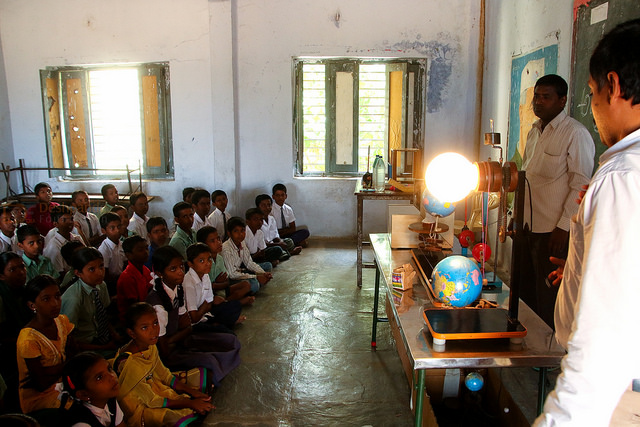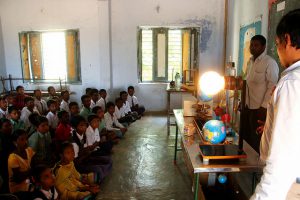Transform Personal Compassion into Social Compassion: Kailash Satyarthi

The world can be made a beautiful place if people transformed their personal compassion into social compassion. Compassion can be globalized, and people should connect with each other beyond geographic boundaries and biological relations.
“We must transform our personal compassion into social compassion. Globalize compassion, so that we can make the world better for ourselves and our children,” Nobel Prize winner Kailash Satyarthi urged the audience at the Development Dialogue 2015.
 He called on innovators and social entrepreneurs gathered at the summit to be sensitized to the issues that children across the world face. Bringing the issue of child labor and child trafficking to center stage, he said that the world over, the business of child trafficking was a business worth $150 billion annually. “Across the world, 168 million children are forced to work, 58 million children have no access to education, 150 million children have been forced to leave school before attending, and 5.5 million children are enslaved and unable to lead a free life,” he said, enlisting the plight of unfortunate children across the globe.
He called on innovators and social entrepreneurs gathered at the summit to be sensitized to the issues that children across the world face. Bringing the issue of child labor and child trafficking to center stage, he said that the world over, the business of child trafficking was a business worth $150 billion annually. “Across the world, 168 million children are forced to work, 58 million children have no access to education, 150 million children have been forced to leave school before attending, and 5.5 million children are enslaved and unable to lead a free life,” he said, enlisting the plight of unfortunate children across the globe.
Kailash appealed to the audience to become solutions to obvious problems such as those faced by the children. “Our children are our present and our future. We have to protect our children. Less than a week of global military spend can send all the children in the world to good schools,” he said, adding “each of us can become solutions. We should transform our passion into social action,” he said.
The Development Dialogue hosts a set of deliberations to connect social actions to meet challenges faced by underserved sections of communities. According to Kailash, the Dialogue touched many crucial aspects of the work that can be done to make the country a better place. “There are two main things that can drive this transformation: one is the youth with their young energy, innovations, new ideas. Secondly, (the impact will come from) how you have linked technology and education with farmers and agriculture,” he said.
